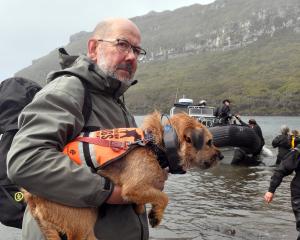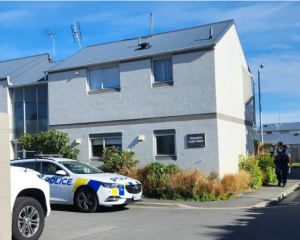
It comes after about 30 groups of educators, doctors and anti-poverty advocates called for political parties to deliver on their campaign promises on child poverty and for urgent cross-party talks.
Children's Commissioner Judge Becroft has offered to broker cross-party talks on the issue.

Ms Ardern said she supported the call for a non-partisan approach.
One of Labour's 100 Days promise was to introduce legislation to set targets and measure progress in reducing child poverty.
"All our work should be geared towards this, regardless of our political views. No government should be afraid of being measured in this way.
"I intend to reach out to the Opposition over coming weeks to talk through our draft legislation. I hope it receives widespread support.''
She said she was keen to lead the way in setting a commitment to tackling child poverty that would survive successive governments.
National's spokeswoman for Children Paula Bennett said the party was committed to working on poverty, but its support for any legislation would depend on whether the Government could prove it would work.
"The causes of hardship are often complex and intergenerational. Labour cannot just continue throwing money at the problem like it has in the past.
"The Government needs to do more than measure poverty and set targets - it needs to identify those stuck in difficult lives, and then actually help them one by one.''
She said National was doing that under its data-driven social investment approach but Labour had signalled it would back away from that.
In Opposition, Ardern criticised National for refusing to adopt an official measure of child poverty or set a target to reduce it.
However, during the election campaign National leader Bill English pledged to a target of getting 100,000 children out of poverty, saying National's package on family incomes would have helped at least 50,000.
The groups including the NZ Educational Institute, the Medical Association, Child Poverty Action Group and the Child Wellbeing Network have called for a non-partisan solution to child poverty.
NZEI Te Riu Roa president Lynda Stuart said teachers saw its impacts every day.
"Political differences should not be allowed to stand in the way of honouring the human rights of every New Zealand child, including their right to an education and to a life free of poverty,'' Ms Stuart said.
NZMA chairwoman Dr Kate Baddock said child poverty was an election issue for many and had been a concern to the NZMA for a long time.
There had been a number of recent reports on child poverty, including Solutions to Child Poverty in New Zealand by the Children's Commissioner's Expert Advisory Group, and a Parliamentary Health Select Committee report on improving child health outcomes.












